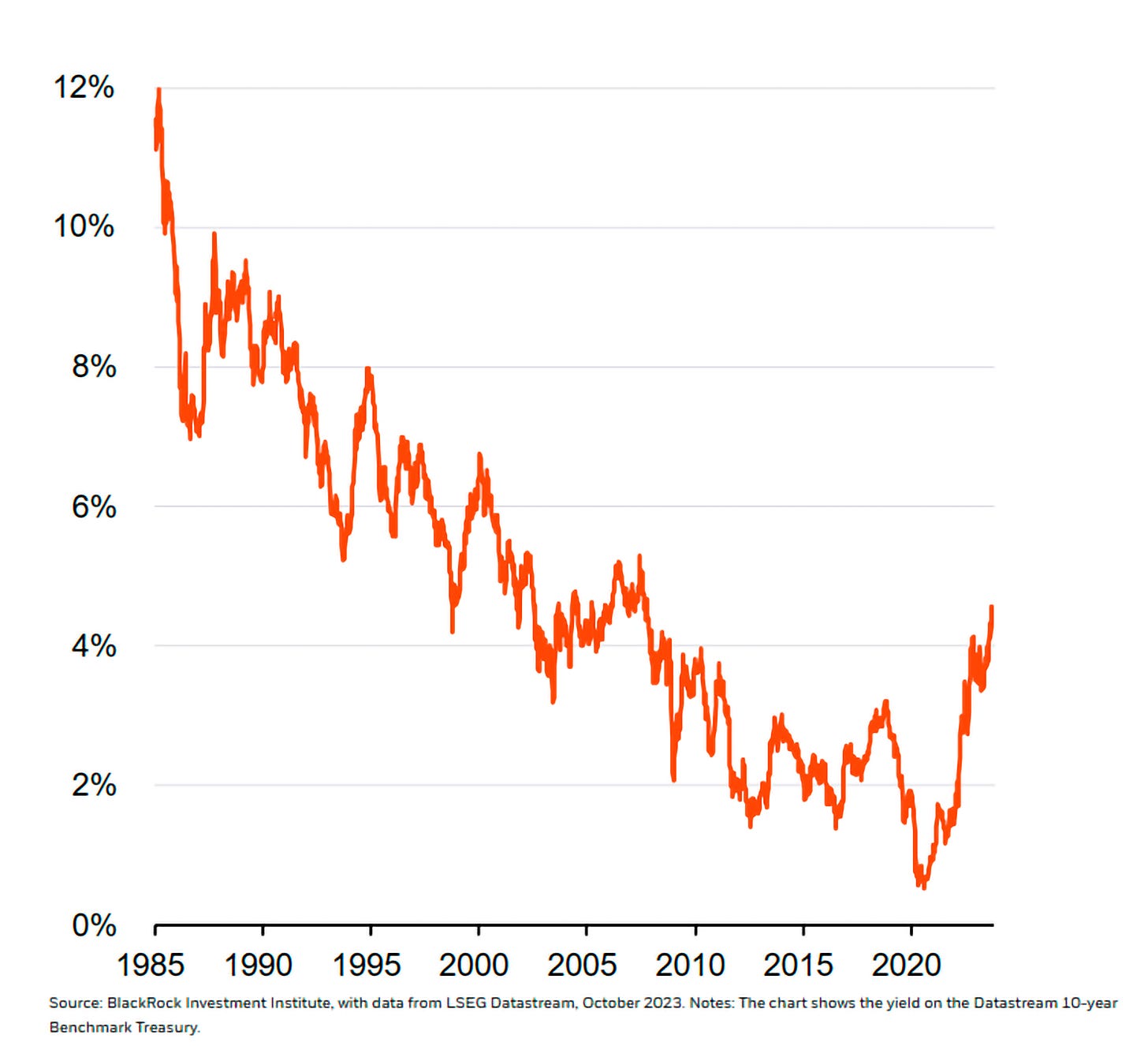Columbus Day, Monday, October 9th
Exciting Times ahead: Stock Market, Bonds, Israel, OPEC+, government shutdown and more.
Columbus Day, or Indigenous Peoples' Day, is recognized as a Federal Holiday in 2023, yet the stock market remains open.
Consequently, traders will conduct business as usual. Both the New York Stock Exchange (NYSE) and the NASDAQ Stock Market will operate from 9:30 am to 4:00 pm (EST). However, the bond market will be closed on Monday, granting bond traders in the US an extended weekend. Similarly, banks will also remain closed.
Traders perpetually have market dynamics on their minds, and currently, there is ample to ponder. The primary focus is on the Q3 results, which are not expected to hold many surprises. Instead, Q4 results and the potential absence of an end-of-year rally in 2023 are more likely to be the focal points of investor concern. This perspective is widely accepted.
Anticipating Q4 Results
Q4 results are typically bolstered by end-of-year spending, with holidays like Christmas and Chanukah, Thanksgiving, Black Friday, and Cyber Monday providing a significant economic boost. However, this year may deviate from the norm due to the potential government shutdown, which looms ominously over an already fragile economy.
Kevin McCarthy, the former Speaker of the U.S. House of Representatives, was removed from his position for passing the continuing resolution (CR), a temporary funding measure designed to avert a partial shutdown of Federal agencies funded through annual appropriations. Although the CR was passed by Congress and signed into law by President Biden, it only extends from October 1st, 2023, through November 17th, 2023.
Chaos and Uncertainty: The Search for the Next Speaker
Currently, there is no clear consensus on the next Speaker. While Jim Jordan, R-Ohio, and Steve Scalise, R-La., are viable candidates, the existing motion to vacate (MTV) the House remains a significant hurdle. U.S. Senate Republican Leader Mitch McConnell has highlighted that maintaining the MTV, which can be triggered by a single member of the U.S. House, will likely complicate governance, especially with the mid-November deadline to prevent a government shutdown approaching.
Fluctuating Market Narratives
The year commenced with apprehensions about a potential recession, which ultimately did not materialize. Predicted sharp rate cuts and a 'soft landing' also did not transpire, with central banks not providing the anticipated economic rescue.
Source: BlackRock Investment Institute, with data from LSEG Datastream, October 2023. Notes: The chart shows the yield on the Datastream 10-year Benchmark Treasury (1985-2023)
Navigating the Financial Landscape: JPMorgan Acquires Majority of Former SIVB’s Clients
In the U.S., the Federal Reserve largely depended on JPMorgan to manage the fallout after the Silicon Valley Bank (SIVB) was closed by regulators due to inadequate liquidity and insolvency. An informal tally shared by VCs indicates that over 90% of the former SIVB’s clients transitioned to JPMorgan during the Q1 2023 crisis.
Up at the close – Slightly in the green: ^DJI, ^GSPC and ^IXIC
The conflict in the Middle East makes predicting the future a lot harder. The growing geopolitical risk can easily pull down the economic outlook and quickly add to the concerns about rising interest rates and looming inflation.
In the short term, the ^DJI and ^GSPC came out slightly ahead at the close. The ^DJI was up +0.59% (+197) and the ^GSPC was also up a notch higher +0.63% (+27.16). Not by much, but still in the green. The rather tech-heavy Nasdaq Composite (^IXIC) climbed only a rather moderate +0.39% (+52.90).
A Double-Edged Sword: The Middle East Conflict
The current conflict in the Middle East, initiated by a large-scale attack on Israel by the Islamist militant group Hamas, and Israel's subsequent declaration of war, is likely to persist, impacting global markets and economies.
The week began with speculation that major crude-producing countries might be drawn into the Middle East conflict. WTI crude oil futures (CL=F) and Brent crude futures (BZ=F) surged over 4% higher as the conflict entered its third day. Investors are turning to perceived safe havens like gold (GC=F) and government bonds.
Defense-related stocks also saw a surge, with Northrup Grumman (NOC) jumping over 11%, Lockheed Martin (LMT) rising nearly 9%, and General Dynamics (GD) increasing over 8%.
Upcoming Economic Indicators: The Consumer Price Index (CPI) for September
Traders are on the lookout for indicators to gauge future expectations. While no method is infallible, the upcoming release of the Consumer Price Index (CPI) for September will offer insights to guide investors' future decisions. Additionally, this week’s minutes from the last meeting of the Fed are slated for release.
Navigating Economic Strategies: 'Higher for Longer' or 'Pause and Evaluate'
The Federal Reserve faces a decision: adopt a 'higher for longer' strategy or hit the pause button to evaluate further.
Fed's Vice-Chair Jefferson (voter) advocates for a cautious approach to balance the risks of over-tightening or under-tightening. He supports a 'wait-and-see' approach, believing it may be premature to definitively state whether the tightening measures have been adequate or excessive.
Jefferson urges the Fed to 'proceed carefully' to ensure a balanced risk and to better assess the impact of higher yields on tightening.
Fed Perspectives: Dovish (Jefferson) vs. Hawkish (Barr and Logan)
Jefferson, one of the few dovish (Voting) Vice-Fed chairs, is contrasted by the more hawkish stances of (voting) Fed chairs Barr and Logan. Logan advocates for higher bank capital requirements, arguing that the benefits of this policy would outweigh the costs.
Barr acknowledges that while higher capital requirements would elevate funding costs, they would also enable banks to absorb more losses.
Logan, perceived as a hawk, supports continued restrictive financial conditions, deeming them necessary to reduce inflation and establish a sound interest rate policy.
Furthermore, Logan also believes the Fed should be aware that the financial conditions have already significantly tightened in recent months.
Logan is convinced that the Fed should definitely avoid overshooting.
In Conclusion
Challenging times undoubtedly lie ahead.





